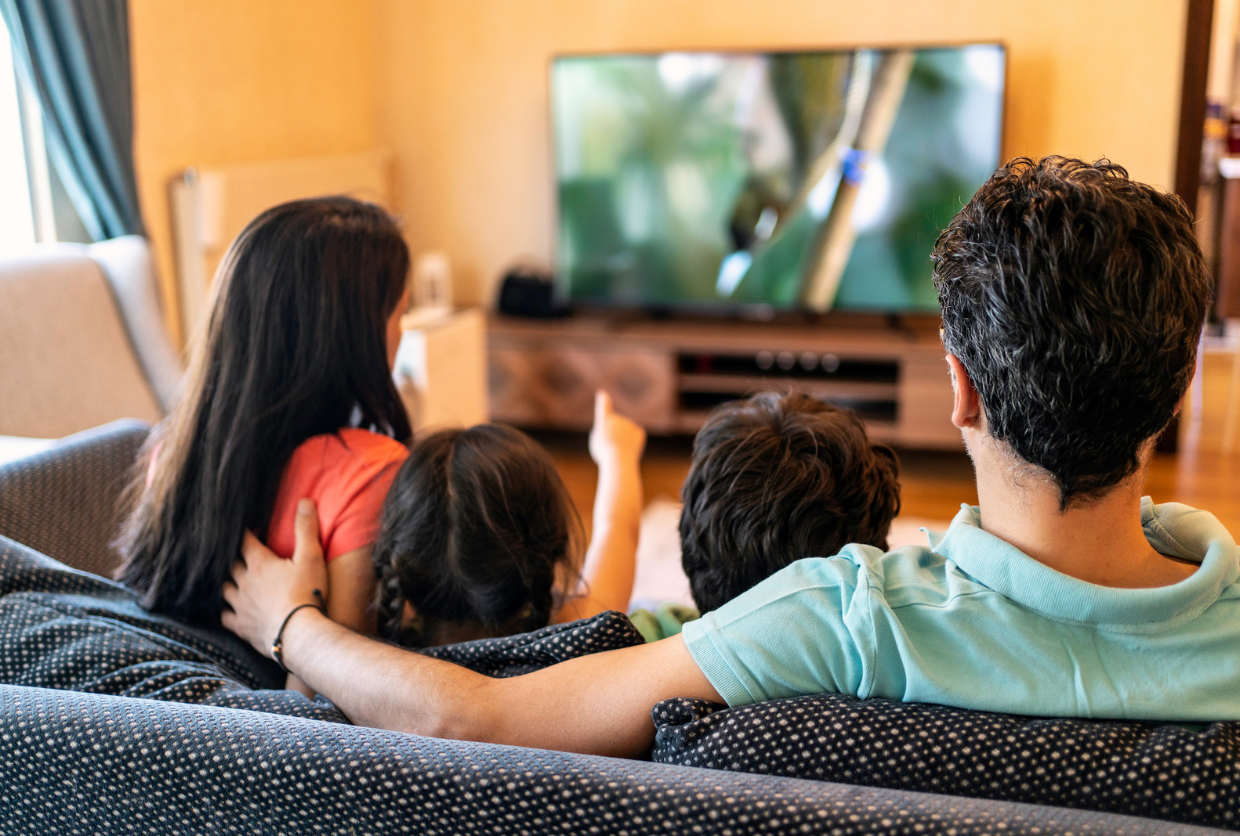Technology is having an immense impact on how guests experience in-room entertainment. With the rise of streaming services, hotels have begun to offer direct in-room access to content streaming. While pre-installed streaming options are convenient, guests desire access to even more versatile content.
The solution? Casting. TV casting gives hotel guests customizable, dynamic access to all of their digital content. Let’s explore what TV casting is, how it can improve guest experiences, and what infrastructure your hotel needs before offering the service.
What is Casting for a TV?
Casting technology “casts” content from another device, such as a phone, tablet, or laptop, onto a television screen for viewers to watch or interact with. It’s essentially a projection of content from one device to another, all done digitally.
Once cast, all control over content takes place on the television, rather than on the device. Compared to access on a laptop or phone, casting allows guests to enjoy content on a larger, sharable screen.
Casting Vs. Streaming
Although both represent great ways to improve the hotel room guest experience, casting and streaming are two distinct entities.
Streaming refers to viewing or listening to any content not downloaded to a device. The term includes video streaming services, such as Netflix or Hulu, and music streaming services, like Spotify or Apple Music. It can even refer to free platforms such as YouTube or SoundCloud.
While many guests use it to stream content, casting encompasses more than content streaming. Guests can cast pretty much anything onto televisions, including streaming, downloaded content, and more.
Diverse Guest Uses of Casting
What, then, can guests access via casting? Although this is by no means a comprehensive list, here are a few options.
Content Streaming
As previously mentioned, many guests will leverage casting as their go-to means to stream content. Casting lets guests watch content from virtually any streaming platform on hotel televisions — without re-entering personal information or using a generic account.
Many streaming services, such as Netflix and HBO Max, have casting capabilities built into their apps and websites. For guests, casting through these services is as easy as following a set of intuitive, specific instructions per platform.
Downloaded Content
Another use of casting stems from pre-downloaded content, allowing guests to view highly personalized media on their hotel television screens.
The versatility of pre-downloaded content is extensive. Guests hosting family and friends can display on-screen memories as they prepare for a night on the town. Or, for movies unavailable on streaming, guests can share downloaded video files on the big screen. Possibilities for downloaded content casting are as limitless as a guest’s digital library.
Internet Browsing
Beyond consuming content, casting also lets guests explore the web on their television. Guests can cast browsers such as Google Chrome, Safari, and Bing.
This feature offers massive convenience to guests, especially whilst planning trips on the fly. Travelers can find local attractions, debate restaurant menus, and create smooth travel plans — all without huddling around a smaller screen.
Powerpoints, Spreadsheets, and Emails
Casting also allows professionals to plan, collaborate, and work in their hotel rooms. Guests can cast online services, such as the Google Suite, or offline software, like Microsoft Word, Excel, and Powerpoint.
Big screen access to these apps offers professionals extensive opportunities to collaborate — from filling out spreadsheets to rehearsing and fine-tuning a presentation.
For professionals working alone, casting can also provide extensive utility. While casting, the television screen serves as a second monitor. For demographics such as bleisure travelers and digital nomads, this feature optimizes workflow, eliminating the need to travel with an extra display.
What Do Hotels Need to Offer Casting?
Hotel guests can’t cast to televisions without the proper accommodations. To offer casting to travelers, hoteliers need to install casting devices and dependable WiFi networks.
TV Casting Devices
Televisions need to be compatible with casting, whether through built-in hardware or an external device.
Many smart televisions, including the latest from Sony and Vizio, offer pre-installed casting capabilities. Should a hotel install these televisions in rooms, guests can cast their favorite content instantly.
For televisions without built-in casting, hotels need to invest in plug-in casting devices. These gadgets, like Google Chromecast, connect through an HDMI port. Once enabled, guests can switch to the designated channel and cast as they please.
A Reliable WiFi Network
While there are ways to cast to a TV without WiFi — such as using the network connection of a cellular device — guests will expect hotels to provide an internet connection strong enough to support casting.
To connect devices, guests need to link their device to the same WiFi network of the designated television/casting plug-in. As such, hotels offering casting need the bandwidth to support multiple devices in each room.
Additionally, guests will need a powerful WiFi network to stream the online content. For these reasons, having a sturdy WiFi network is essential for modern hotels.
BlueprintRF Provides Powerful WiFi Networks For Casting
Television casting provides guests with a versatile alternative to traditional IRE. With diverse capabilities and easy implementation, modern hoteliers should consider casting a worthwhile addition to their portfolio of IRE options.
Consider implementing a WiFi network designed and customized by BlueprintRF to support television casting. Our experienced team conducts an on-site survey to determine the needs of your network. Once assessed, we build your network from the ground up, before installing, testing, and connecting it to your hotel.
Looking to implement a network fit for casting sooner rather than later? Reach out to our team today.









